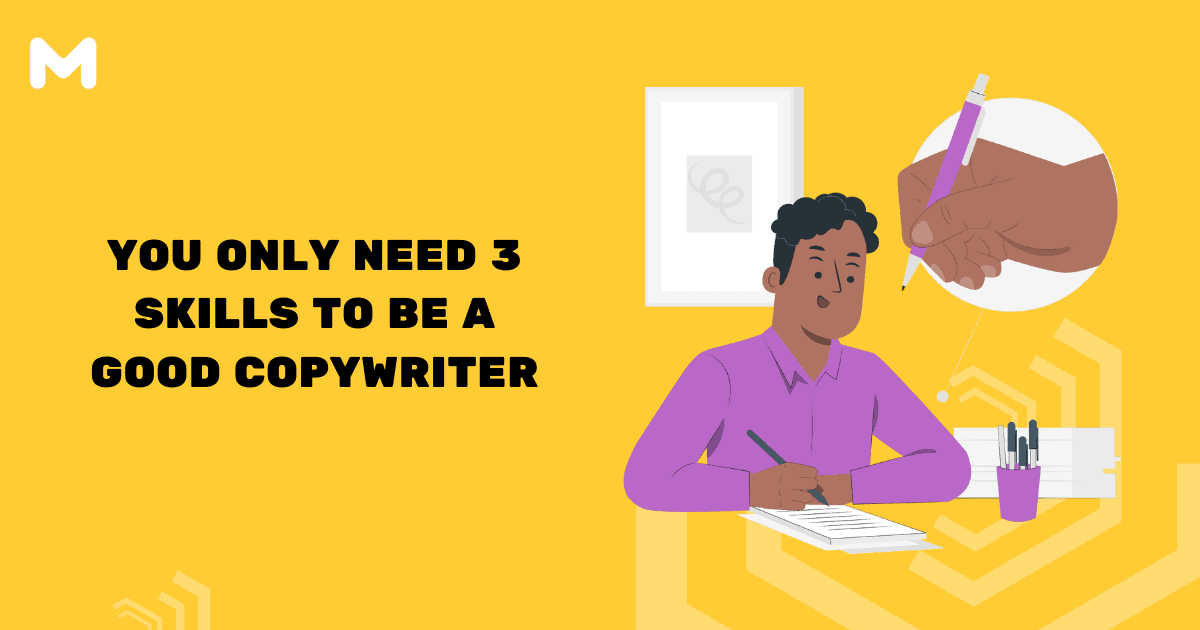Are you looking to become a copywriter but feeling overwhelmed by the number of skills required? Fear not, my friend, because you only need three key skills to be a good copywriter. Yes, you heard me right, just three! So, let’s dive in and take a closer look at what those skills are.
The Ability to Write Compelling Headlines
The first skill you need to become a good copywriter is the ability to write compelling headlines. Why? Because your headline is the first thing people will see, and it needs to grab their attention and make them want to read on. A great headline should be short, sweet, and to the point. It should also make a promise or offer a benefit that your reader can’t resist.
For example, “10 Tips for Writing Killer Headlines” is a much better headline than “Writing Headlines.” It’s specific, it promises tips, and it uses the word “killer” to make it sound exciting. Here are a few examples of compelling headlines that could capture a reader’s attention:
- “5 Surprising Benefits of Drinking Coffee Every Day”
- “10 Simple Tricks to Help You Fall Asleep Faster Tonight”
- “The Ultimate Guide to Planning Your Dream Vacation”
- “Why You Should Invest in a Quality Mattress for Better Sleep”
- “How to Cut Your Grocery Bill in Half Without Sacrificing Quality”
As you can see, each of these headlines offers a specific benefit or promise that the reader can’t resist. They also use numbers, questions, or intriguing statements to pique the reader’s curiosity and encourage them to read on.
The Ability to Write Persuasive Copy
The second skill you need to become a good copywriter is the ability to write persuasive copy. Your copy should be engaging, informative, and compelling. You want your reader to feel like they need your product or service, and you want to convince them to take action.
To write persuasive copy, you need to understand your target audience and what they’re looking for. You also need to know what your product or service offers and how it can help your audience. Use persuasive language, such as “you” and “your,” and highlight the benefits of what you’re selling.
For example, “Our product will save you time and money” is much more persuasive than “Our product is great.” Here are some examples of persuasive copy and self-editing that could be used as illustrations for the subheadings:
- The Ability to Write Persuasive Copy:
- “Transform Your Body in 30 Days with Our Revolutionary Fitness Program”
- “Discover the Secret to Perfectly Fluffy Pancakes Every Time”
- “Get More Done in Less Time with Our Productivity Hacks”
- “Unleash Your Creativity with Our Comprehensive Art Course”
- “Say Goodbye to Acne Forever with Our Dermatologist-Approved Skincare Routine”
In each of these examples, the copy is persuasive because it focuses on the benefits the reader can expect to receive from the product or service being offered. The copy speaks directly to the reader, using second-person language to make the reader feel personally addressed.
The Ability to Edit Your Own Work
The third and final skill you need to become a good copywriter is the ability to edit your own work. No one is perfect, and mistakes will happen. But as a copywriter, it’s your job to catch those mistakes and fix them before your copy goes live. This means taking the time to review your work with a critical eye and refining it until it’s polished and effective. Whether it’s grammatical errors, unclear messaging, or overly complex language, editing ensures your copy resonates with the audience. Just as professional web developer benefits include streamlined and functional designs, a well-edited piece of copy provides clarity and enhances the user experience.
Editing your work involves checking for grammar and spelling errors, making sure your copy flows well, and ensuring that your message is clear and concise. It can be helpful to take a break from your work and come back to it later with fresh eyes. You’ll often catch mistakes that you missed the first time around.
- “After a quick edit, the sentence reads smoothly and clearly.”
- “Check your spelling, grammar, and punctuation to ensure your writing is error-free.”
- “Read your work aloud to catch awkward phrasing or repetition.”
- “Eliminate unnecessary words or phrases to keep your writing concise.”
- “Take a break before revising your work to approach it with fresh eyes.”
Each of these examples highlights a different aspect of self-editing, from catching errors to improving clarity and flow. They emphasize the importance of taking time to revise and refine your work before publishing it, to ensure the best possible result.
Let’s start to work on your skills
So, there you have it, my friend. The three skills you need to become a good copywriter are the ability to write compelling headlines, write persuasive copy, and edit your own work. With these skills under your belt, you’ll be well on your way to becoming a successful copywriter.
And remember, writing a great copy doesn’t have to be boring. Have fun with it, and don’t be afraid to inject a little humor into your writing. As long as you’re engaging your reader and delivering your message, you’re doing your job as a copywriter.
